1987 Toyota 4Runner Tires & Services
Get Started
Complete Auto Care for Your 1987 Toyota 4Runner
-
TIRES FOR YOUR 1987 Toyota 4Runner View Tire Info GET TIRE PRICING
-
REPAIR FOR YOUR 1987 Toyota 4Runner View Repair Info SCHEDULE REPAIR
-
MAINTENANCE FOR YOUR 1987 Toyota 4Runner View Maintenance Info SCHEDULE MAINTENANCE
-
OFFERS FOR YOUR 1987 Toyota 4Runner Limited Time Tire Offers VIEW ALL COUPONS
1987 Toyota 4Runner Tires
Recommended Tires | Tire Information
1987 Toyota 4Runner Tires Sizes, Speed Ratings, and Inflation
Not sure about your 1987 Toyota 4Runner tire size? Use the following chart to find information on tire size, speed rating, and inflation.
| Trim Level | Speed Rating | Inflation in PSI F/R | Tire Size |
|---|---|---|---|
| 1987 Toyota 4Runner SR5* | None | 29 PSI/32 PSI | P225/75R15 |
| 1987 Toyota 4Runner SR5* | None | 29 PSI/32 PSI | P265/70R16 |
| 1987 Toyota 4Runner DLX | None | 26 PSI/30 PSI | P225/75R15 |
|
1987 Toyota 4Runner SR5* Speed Rating: None Inflation F/R: 29 PSI/32 PSI |
|
1987 Toyota 4Runner SR5* Speed Rating: None Inflation F/R: 29 PSI/32 PSI |
|
1987 Toyota 4Runner DLX Speed Rating: None Inflation F/R: 26 PSI/30 PSI |
* Note: these models have different tire sizes depending on vehicle options.
Recommended Tires for Your 1987 Toyota 4Runner
What tires are best for a 1987 Toyota 4Runner? Check out the following tire brands and types.
 ALENZA AS ULTRA
ALENZA AS ULTRA
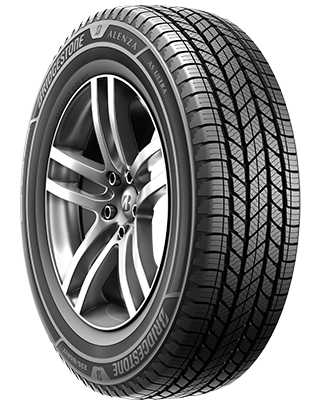
- No warranty
- All-Season
- Light Truck Tires
 Blizzak DM-V2
Blizzak DM-V2
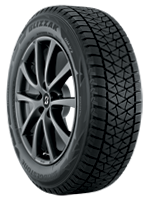
- No warranty
- Winter
- Winter
 Dueler A/T Revo 3
Dueler A/T Revo 3
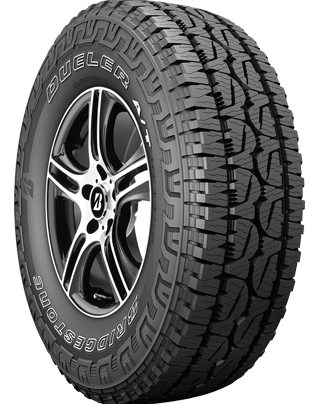
- Platinum Pact Limited Warranty
- All-Season
- Light Truck Tires
 Destination LE3
Destination LE3
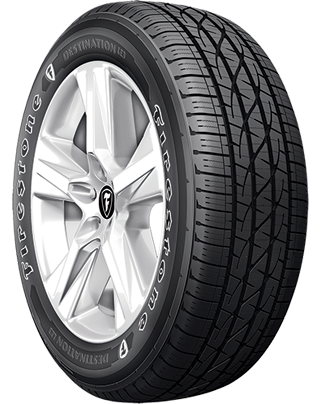
- No warranty
- All-Season
- Light Truck Tires
 Destination A/T2
Destination A/T2
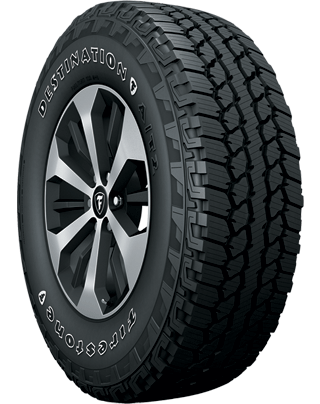
- Gold Pledge Limited Warranty
- All-Season
- Light Truck Tires
 Winterforce 2 UV
Winterforce 2 UV
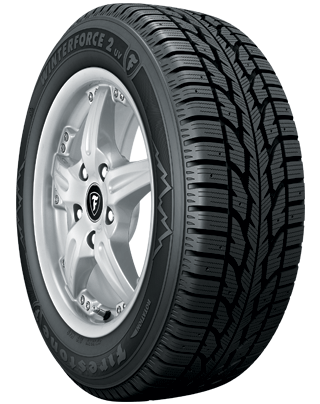
- No warranty
- Winter
- Winter

- No warranty
- All-Season
- Passenger Tires
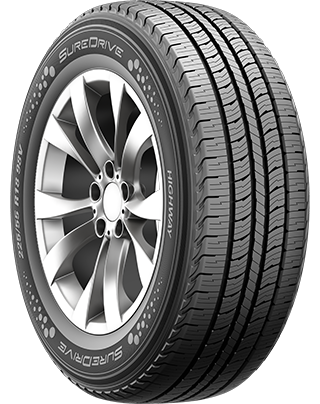
- No warranty
- All-Season
- Light Truck Tires
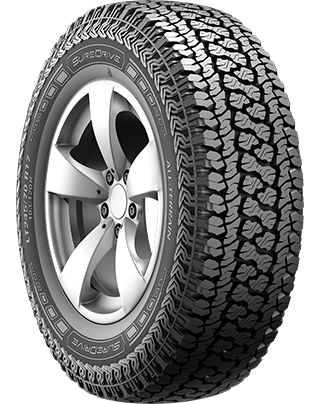
- No warranty
- All-Season
- Light Truck Tires
 Extensa A/S II
Extensa A/S II

- No warranty
- All-Season
- Passenger Tires
 OPEN COUNTRY A/T III
OPEN COUNTRY A/T III
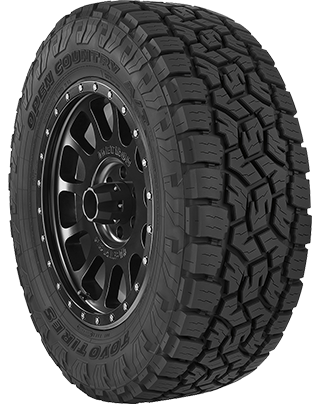
- No warranty
- All-Season
- Light Truck Tires
Choosing 1987 Toyota 4Runner Tires
Beyond the correct tire size, you also want to consider a handful of other factors when buying new Toyota 4Runner tires like how and where you drive, and how much you want to spend. Think about where you live (countryside vs. city vs. mountains) and the kind of unexpected weather you're likely to experience when evaluating your driving conditions. Many drivers who live in states that experience all four seasons choose to purchase two sets of tires: one set for winter, one set for summer. Other drivers prefer to purchase one all-season set to limit trips to the tire shop and make sure their vehicle is prepared in the rain, sleet, snow, or sun!
Your personal driving style is the next factor to consider. If you're a diehard off-roader, you have very different tire needs than a highway commuter who doesn't leave the paved path. Talk to a tire technician at Firestone Complete Auto Care for help choosing the best tire for you, or start shopping for Toyota 4Runner tires online.
1987 Toyota 4Runner Tire Installation & Rotation
We sell tires, but we also service them and care for all the around-the-wheel components. We're a tire store that also offers professional tire installation, maintenance, and rotation, along with complete auto care. We make it easy to buy new 1987 Toyota 4Runner tires online and book an installation appointment at the same time.
1987 Toyota 4Runner Tire Questions
-
Why does Toyota tire inflation matter? A small decrease in tire pressure can have a big impact on your driving. Maintaining proper tire pressure can help improve braking time, increase fuel economy, and boost tire lifespan.
-
What do the numbers on my Toyota 4Runner tires mean? Your tire sidewall numbers tell you the recommended load carrying capacity, speed rating, treadwear, traction, and tire size. Talk to a tire technician to learn how to read Toyota tire numbers.
-
How do I check the tread depth on my Toyota tires? Stay on top of your tire tread depth to help avoid a dangerous drive. You can check tread depth with a penny. Hold the penny so that Abraham Lincoln is facing you, then place your penny into a tread groove upside down. If you can see the top of Abe’s head, your tread is shallow and it might be time for new Toyota 4Runner tires. Grab a penny. Hold the so that Abe Lincon's head is facing you and his hair is pointing toward the ground. Then, place the penny into a tread groove. If you can see the top of Abe’s head, your tread is shallow and it might be time for new Toyota 4Runner tires.
1987 Toyota 4Runner Repair
How do I learn more about auto repairs? Click on a service below to read about the types of Toyota 4Runner repairs we do at Firestone Complete Auto Care.
About 1987 Toyota 4Runner Repairs
No driver looks forward to car repairs. We’re here to change that, though. At Firestone Complete Auto Care, we want to make car repair painless and hassle-free. Bring your 1987 Toyota 4Runner in for repair services and our technicians will take care of your 4Runner like it was their own. We’ll start by assessing what repairs may be needed, and we’ll provide you with a detailed explanation of what we recommend. If a repair isn't necessary, we won't recommend it.
How Much Does Toyota 4Runner Repair Cost?
Several factors can affect the cost to repair your 1987 Toyota 4Runner, including what kind of repair you need, prices of appropriate replacement parts, how much labor the repair will take, and your locale. But regardless of where you’re located, check out our website for repair coupons and offers that could save you some cash.
A few different aspects can influence repair costs for your 1987 Toyota 4Runner, like
1987 Toyota 4Runner Auto Repair Questions
-
Do I still need scheduled maintenance even when nothing is wrong with my Toyota? The cheapest 1987 Toyota 4Runner repair is the one that isn’t necessary in the first place! Staying up-to-date with your car’s scheduled maintenance services is a great way to keep future repair costs low.
-
Should I bring my Toyota in even if I can't pinpoint the problem? You’re in your car, day in and day out. So, it’s only expected that you know your car better than anyone else! If you notice mysterious smells, strange engine noises, or other out-of-the-ordinary symptoms while driving, trust your instincts and stop into Firestone Complete Auto Care for a Courtesy Check. Catching a potential issue early could help prevent Toyota 4Runner repairs.
-
Why do you recommend certain repairs for my Toyota? We won’t recommend a service or repair for your 1987 Toyota 4Runner unless we think it’s necessary to keep you safe. Want to know more about a specific recommended repair? Ask! We’re here to help.
Brake Repair for Your 1987 Toyota 4Runner
Your Toyota 4Runner engine may be strong and reliable. But if you can’t stop it, it’s as good as scrap metal. If you notice your brakes are squeaking or not working well, don’t wait! Safe driving and responsive brakes go hand in hand. Plus, waiting can lead to more expensive parts wearing out and requiring replacement. Visit Firestone Complete Auto Care for the right brake repair for your 1987 Toyota 4Runner. Our brake repair services include pad/shoe replacement, brake rotor/drum refinishing, brake fluid exchange/bleeding, and brake caliper and wheel cylinder installation.
Answers to Your 4Runner Brakes Questions
-
Why is my 4Runner shaking as I brake? Feeling shaking or vibrating in your 4Runner as you brake might indicate a few different problems, including worn brake pads or rotors, loose suspension components, damaged brake calipers, or warped rotors. Book an appointment for a free brake inspection as soon as you notice a problem with your brakes.
-
How long can I expect my 4Runner brake pads to last? You can usually get around 30,000 to 40,000 miles out of your brake pads, but how and where you drive your 4Runner can affect this. Hauling large loads or riding your brakes can shorten their lifespan, while smoothly braking and mostly sticking to highways can help your brake pads last longer.
-
Is it bad if my 4Runner is leaking brake fluid when off? Your 4Runner brake system is a closed hydraulic system, which means that the brake fluid should not leak out of the system under normal circumstances. However, over time, the various components of the brake system can wear out or become damaged, which can cause brake fluid to leak out of the system.
When to Get Toyota 4Runner Drivetrain Repairs
You don't want to go to just anyone for drivetrain repair. Drivetrains for front, rear, and all-wheel-drive and 4WD vehicles are all different. You want to go to Firestone Complete Auto Care. We can fix many 1987 Toyota 4Runner drivetrain components Your Toyota 4Runner may need driveshaft attention if you feel resistance when turning, heavy vibrations in your floorboards, clunks when shifting, or vibration as your vehicle accelerates.
1987 Toyota 4Runner Drivetrain Questions
-
What are the symptoms of a damaged Toyota drivetrain system? Your Toyota 4Runner drivetrain might be damaged if you notice strange noises from the rear of your vehicle, see fluid leaking, or have issues turning.
-
Why is the malfunction indicator light (MIL) on in my 4Runner? The malfunction indicator light — also known as the check engine light — on your 4Runner can illuminate for a variety of reasons, including engine issues, electrical problems, damaged sensors, transmission problems, misfires, and faulty connections.
-
How serious is a drivetrain malfunction in my 4Runner? Don't ignore a drivetrain malfunction in your 4Runner. As soon as you notice a problem, have it checked by a professional mechanic to diagnose the issue and carry out any necessary repairs. Driving with a faulty drivetrain is risky and may further damage your 4Runner.
1987 Toyota 4Runner Alignment Services
Alignment services involve precise adjustments to your Toyota 4Runner’s suspension system, which connects the wheels with the rest of the vehicle. In an alignment service, the individual angles of your tires are adjusted so that they come into contact with the road in just the right way — the way Toyota intended them to. Before we adjust the alignment of your 1987 Toyota 4Runner, we’ll start by checking the current alignment angles. Then, we’ll adjust the angles as needed until they match recommended measurements from Toyota.
Toyota 4Runner Alignment Questions
-
Are there road conditions that can hurt my Toyota 4Runner alignment? Potholes and uneven roads can knock your car out of alignment, so stay aware of the road ahead and adjust your speed (or avoid these obstacles whenever it’s safely possible).
-
How frequently should you get a wheel alignment for your 4Runner? Check your 4Runner owner's manual for Toyota's recommended interval. It's generally a good idea to check your alignment every 6,000 miles or 6 months, depending on which comes first.
-
Do you need to get your 4Runner wheels aligned? It’s likely not a requirement to get an alignment when you install new tires on your 4Runner, but it's a smart idea to do so anyway. An alignment can help ensure even tire wear, smooth handling, and better fuel efficiency.
Engine Repairs for Your 1987 Toyota 4Runner
If your 1987 4Runner engine needs repairs, our expert techs will let you know what needs to be done and why before they get started. We never do any work without your sign-off. If a repair can wait, we'll let you know. But if immediate repairs are necessary for your safety, we’ll make sure that's clear, too. We seek to give you all the info you need to make a smart decision about our services. Turn to Firestone Complete Auto Care for your 1987 4Runner engine repairs and you can drive easy knowing that we use Toyota-approved parts and fluids — timing chain or belt, oil gasket, sensors, or another part.
Engine Q&A 1987 Toyota 4Runner
-
Why does the check engine light in my 4Runner turn on when I start my car? Generally, your check engine light turning on upon ignition is not a bad thing. It’s just your 4Runner firing up its circuits. The light should turn off in a bit, but come see us if it doesn't.
-
Why does my Toyota engine sound different? Strange engine sounds can be a sign something’s off in your Toyota 4Runner. Knocking or tapping could be a symptom of low oil. A high-pitched whistle could signal an intake leak or misaligned belt. Squealing can be traced back to a loose fan belt, and grinding might be a sign of brake problems rather than engine issues.
-
What could damage a Toyota engine? Certain driving habits can hurt your engine. These habits include driving on an empty fuel tank, revving your engine while the vehicle is in Park, or slamming the gas pedal while the engine is still cold. Steer clear of these habits to help protect engine performance and efficiency.
1987 Toyota 4Runner Tire Repair
Firestone Complete Auto Care is here for you when your 1987 Toyota 4Runner needs flat tire repair or inspection. Our tire technicians can determine whether it's safe to plug and patch the tire, or whether it needs to be replaced. We’ll begin by taking a look at where the damage is, the type and extent of the tire damage, and how all of your tires are wearing.
If we determine that your 1987 Toyota 4Runner tire can be safely repaired, the repair process is actually fairly simple: (1) Separate the tire from the vehicle wheel, (2) fill in the area that’s been punctured to prevent damage from moisture, and (3) re-seal the inside lining of your tire so that air won’t escape.
Toyota 4Runner Tire Repair Questions
-
How soon should I have my flat tire repaired? Driving on a flat or underinflated tire can put extra stress on your wheels and alignment. While it’s sometimes necessary to drive a short distance on a flat tire to get to a safe place, don’t take any other trips in your 4Runner until you can have the flat tire repaired or replaced.
-
Will a temporary sealant fix my Toyota's flat tire? Fast fixes are a mixed blessing. They’ll help you get your Toyota 4Runner to Firestone Complete Auto Care, but don’t count on them to keep you on the road for very long. Using a temporary sealant may also void a Bridgestone or Firestone tire warranty.
-
What is causing the tires on my 4Runner to keep losing air? Possible reasons for your 4Runner tires continuously losing air include a leaking valve steam, wheel damage, and a puncture or hole in the rubber.
1987 Toyota 4Runner Maintenance
Take care of your Toyota 4Runner and it'll take care of you. With the right maintenance at the right time, your 4Runner has a good chance of hitting 200,000 miles or more.
Guide to 1987 Toyota 4Runner Scheduled Maintenance
It can be overwhelming, but fortunately, there’s a resource that takes the guesswork out of routine 4Runner maintenance. It’s as easy as following the recommended maintenance schedule that’s been written specifically for your 1987 Toyota 4Runner! Toyota knows your vehicle inside and out (they made it, after all!), so they’ve designed this schedule with your car’s unique needs in mind. Driving conditions, climate variations, and other variables can affect which scheduled maintenance services you’ll need; in most cases, though, recommended maintenance will consist of services like fluid exchanges, filter changes, new brake pads, oil changes, and tire rotations. Staying on track with routine service appointments can help your 4Runner perform better, keep you safer on the road, and prevent common 1987 Toyota 4Runner problems.
Learn About Vital Maintenance Needs for Your Toyota 4Runner
Bring your 1987 Toyota 4Runner to Firestone Complete Auto Care for factory-recommended maintenance services and our technicians will jump right in with a Courtesy Check. A Courtesy Check helps "set the stage" for your service and catch any small problems before they turn into big repairs. Every Courtesy Check will include a visual inspection of your 4Runner. We’ll check your head and tail lights, fluid levels, filters, tires (and their alignment!), and windshield wiper blades. We’ll also perform a free battery check to determine your battery’s charge level.
Firestone Complete Auto Care is the place to go for 1987 Toyota 4Runner maintenance. So visit us regularly, or visit us urgently. Many locations are open on weekends and in the evening.
1987 Toyota 4Runner Maintenance Questions
-
When should I have Toyota 4Runner alignment checked? Check your car for pothole damage! If you’ve recently hit a pothole (or even if you don’t remember hitting one… they can be sneaky!) check your tire treads, tire sidewalls, and wheels for damage. Potholes can also knock your car out of alignment, so have your alignment checked if you suspect you’ve driven over a rough patch of road lately.
-
When should I use high mileage oil in my Toyota 4Runner? If your Toyota 4Runner has ticked past 75,000 miles, consider switching to high mileage oil at your next oil change to give your engine what it needs to go another 75,000 (or more!). High mileage oil: make it a high priority!
-
Why are my Toyota dashboard lights on? Don't ignore dashboard warning lights! Bring your Toyota 4Runner in for a diagnostic code scan as soon as a dashboard warning light flashes on, whether it's your check engine or battery light. Dashboard lights alert you to trouble under the hood.
Battery Size & Replacement for 1987 Toyota 4Runner
Need more info about Toyota 4Runner batteries?
| Battery | Engine | Warranty | Cold Cranking Amps | |
|---|---|---|---|---|
| 26-3 | L4/2.4L | Replacement 24 months | Performance months | 525 |
Car Batteries for 1987 Toyota 4Runner
On average, auto batteries last anywhere from three to five years. Don’t get stranded by your 4Runner’s car battery. Replace it regularly instead! Watch for signs that your current battery is getting too old or too weak. A lagging starter, an illuminated battery or check engine light, swollen battery case, corroded battery posts, or weak lights may all indicate that your battery is waving goodbye.
You can also get a Free Battery Test at your local Firestone Complete Auto Care. Visit us for a complimentary battery check and, if necessary, a battery replacement to help keep your 1987 Toyota 4Runner running! Car batteries are only one of our many strong suits. Our expert technicians understand Toyota service recommendations for 4Runner battery CCAs and reserve capacity. Get help figuring out the battery size that's best for your 4Runner, and schedule a weekday or weekend battery replacement service for your car.
Top Toyota 4RunnerCar Battery Questions
-
Why won’t my Toyota 4Runner battery hold a charge? A battery that won't hold a charge is almost as good as dead. The battery might be old. Or, you may have a habit of leaving your car doors open and the lights on overnight. Stop by for a free battery test at your local Firestone Complete Auto Care to learn more about the state of your battery.
-
What is the average lifespan of a car battery? Car battery lifespan varies depending on a few factors, including driving conditions, accessories, how well it’s maintained, and the type of battery. On average, a car battery lasts about three to five years.
-
What is the white, crusty stuff around my 4Runner’s battery post? The white, crusty stuff that can accumulate around 4Runner car battery terminals is called corrosion. It is caused by a chemical reaction between the battery acid and the air, which creates a white, powdery substance that can build up on the terminals over time. Corrosion can interfere with the flow of electricity between the battery post and the car's electrical system, sometimes leading to poor electrical performance, difficulty starting, and even premature battery failure.
1987 Toyota 4Runner Oil Change Service
Your 1987 4Runner’s oil should be changed according to Toyota’s recommended oil change intervals. Your 4Runner may need an oil change right away if your check engine/oil change light is on, you hear knock knock knock coming from the engine, smell oil inside the car, or notice an unusual amount of exhaust. You may also need an oil change more frequently than Toyota recommends if you haul heavy loads, drive in dusty terrain, adventure off-road, or drive at low speeds for long distances.
Your local Firestone Complete Auto Care has the right 1987 Toyota 4Runner motor oil: either synthetic or conventional. Check your owner's manual and talk with a technician to select the right Toyota 4Runner oil, whether it's Quaker State® Advanced Durability™ conventional oil, Pennzoil® High Mileage Vehicle® motor oil, Pennzoil Platinum® Full Synthetic motor oil with PurePlus™ Technology, or Shell Rotella® heavy-duty engine oil. In an oil change service, a technician will change your 4Runner's oil, replace and recycle the old oil and filter, inspect the rest of your car’s filters, refill vital car fluids, and visually inspect the rest of the vehicle. Make an appointment for an oil change service today and let the oil experts take care of your 4Runner's engine.
1987 Toyota 4Runner Oil Change Q&A
-
Why is my Toyota 4Runner oil light illuminated? Your Toyota 4Runner oil change reminder light might illuminate if it’s been too long since your last oil change. On the other hand, the oil pressure light might illuminate due to a clogged oil filter, a faulty oil pressure sensor, low engine oil levels, or a malfunctioning oil pump.
-
Can I change my Toyota oil on my own? First off, changing your own oil isn’t as easy as you’d think. You’ll have to buy special tools and figure out a way to recycle the old oil properly. Getting a professional oil change reduces the risk of something going wrong during the service, but also helps your car perform down the road.
-
Why is my Toyota exhaust smoke gray or blue? You could have an oil leak and have a case of burning oil. Looks like it’s time for a professional to take a look. The leak could be the result of worn valve seals, fried piston rings, or old cylinder walls.
1987 Toyota 4Runner Tune-Up & Engine Service
Periodic tune-ups can bring more power back to your 4Runner’s engine. The Firestone Complete Auto Care location in your community offers several Toyota 4Runner engine tune-up services. One option is the standard Firestone Tune-Up. It includes a complete visual inspection of engine components, installation of new spark plugs, and a lifetime warranty on parts*. Another service option pays special attention to the filters in your 4Runner. Specifically, we replace the fuel filter and air filter. The third tune-up option is a fuel system cleaning service, which is a three-step process that removes varnish, dirt, and carbon deposits on your 4Runner's fuel injectors, throttle body, and throttle plate. This goes a long way in boosting your fuel system’s overall performance. Keep in mind that your 4Runner's mileage and maintenance history can uniquely impact its tune-up needs. Chat with a Firestone technician before you jump into a specific service to ensure your engine tune-up money is well-spent.
*Ask a Firestone Complete Auto Care teammate about full terms and conditions for warranties.
1987 Toyota 4Runner Engine Tune-Up Q&A
-
Will it hurt my Toyota 4Runner to drive with old spark plugs? When it’s time to replace the spark plugs, don’t delay. These small (but vital!) parts provide the electric spark that your car needs in order to start, and old spark plugs can prevent your car from starting at all. Replace spark plugs on time or about every 30,000 miles or so.
-
What do I do if I see a pool of liquid under my Toyota 4Runner? Puddles could indicate an oil leak, coolant leak, or brake fluid leak– all of which can critically hurt your engine. Have your engine inspected as soon as you spot a pool of liquid in your usual parking spot.
-
How often should I clean my Toyota 4Runner fuel injectors? The cleaning schedule for vehicle fuel injectors varies depending on your driving conditions and the type of fuel you use. Some manufacturers suggest cleaning your fuel system as part of routine maintenance, while others will recommend it on an as-needed basis if you’re experiencing poor performance. Reference your Toyota owner’s manual for exact guidelines.
1987 4Runner Toyota Steering & Suspension Services
During the first few years you had your 1987 Toyota 4Runner, you and your passengers probably enjoyed a ride that was smooth and balanced. Now, however, things are starting to feel a little rough. Perhaps your 4Runner feels bouncy, pulls to one side, or makes an unusual noise when going over a speed bump. As soon as you notice that something’s “off” with your 1987 Toyota 4Runner, bring it in for steering and suspension services. We’ll get to the source of your car problems and, if steering and suspension service is needed, we'll explain all of your options and the potential cost.
Questions About 1987 Toyota 4Runner Steering & Suspension
-
What can cause my Toyota 4Runner to have a bouncy ride? Damaged struts or shocks can't dampen road bumps properly, causing your vehicle to feel like a trampoline after each dip or bump.
-
Why does my 4Runner's nose dive down when I hit the brakes? When you brake, the forward momentum combined with your vehicle's weight sends a lot of force to the vehicle's front end. A bad suspension can cause all that weight and force to push the front end downward.
-
What role do tire pressure and tread depth play in my Toyota's suspension? Maintaining your tires can help reduce strain on the suspension, nd also let you know when it's time to replace your tires. A faltering steering and suspension system could lead to uneven tire wear.
A/C Service for Your 1987 Toyota 4Runner
Our trained technicians will do what they can to solve your 1987 Toyota 4Runner A/C problems. During this initial A/C performance check, we’ll look at the state of your 1987 Toyota 4Runner’s A/C system to evaluate what repairs are necessary (if any). We’ll test overall system performance, check for any leaks, and measure the system pressure.
Let's say we repair your 1987 Toyota 4Runner A/C system. We will also perform an A/C evacuation and recharge. To start this process, a technician will flush out the old refrigerant from your vehicle’s A/C system. Then, they’ll perform an evacuation (also known as a discharge) on the entire system per Toyota guidelines. To finish, we’ll add new refrigerant to recharge the A/C system.
Questions About 1987 Toyota 4Runner A/C Systems
-
What’s making my 4Runner A/C put out warm air? An A/C blowing hot air has several possible root causes. There could be an issue with your compressor clutch, a blown fuse, a leak, or a clog in the expansion valve.
-
What can cause an A/C system leak? Over the years, the rubber seals and gaskets in your 4Runner’s A/C system naturally degrade. Moisture can get into the system and cause a malfunction, or parts can simply wear out so that your system no longer seals properly.
-
Why does my vehicle have to be moving for my 4Runner’s A/C to work? There could be issues with one or more components in the air conditioning or electrical system. Your 4Runner may have a faulty cooling fan or low refrigerant.
Transmission Services for 1987 Toyota 4Runner
Your transmission carries power from the engine to the wheels so that you can drive at the speed you desire. Since the transmission has to translate the precise amount of power for your desired amount of speed, even the smallest transmission problems should be addressed right away. Toyota 4Runner transmission problems can present themselves as shifting delays, grinding or jumping during acceleration, a feeling of shakiness, or whistling noises or a burning smell coming from beneath the hood. Let Toyota 4Runner transmission problems linger and you could see your fuel economy decrease or find that your 4Runner isn’t working at all. Our technicians know how to service your 1987 4Runner up to Toyota-recommended standards. If you think there’s something wrong with your 4Runner’s transmission, schedule an appointment at your local Firestone Complete Auto Care to help keep your engine running at peak performance.
Questions About 1987 Toyota 4Runner’s Transmission
-
How often does my 4Runner transmission fluid need to be checked? Caring for your Toyota 4Runner’s transmission fluid is a great way to help it perform. About every 30,000 to 60,000 miles is a good timeframe for having your transmission fluid inspected and perhaps changed. Service intervals can vary depending on how you use your Toyota, so check with your technician first. Luckily, leaks and low fluid levels are easy to spot and inexpensive to fix.
-
Can transmission fluid leak from my Toyota 4Runner? Yes. Toyota 4Runner transmission fluid can leak over time and potentially cause transmission issues. Worn or damaged seals, a loose or damaged transmission pan, a cracked transmission housing, faulty transmission cooler lines, or an overfilled transmission could cause transmission fluid leaks.
-
Should I avoid driving my Toyota 4Runner if there is a transmission fluid leak? It’s not advisable to drive your 4Runner if it’s leaking transmission fluid. Your transmission system needs transmission fluid to function properly, and a leak can lead to significant problems, such as overheating or reduced performance. You might even experience transmission failure.
Get a 1987 Toyota 4Runner Vehicle Inspection
At Firestone Complete Auto Care, we perform a multi-point Courtesy Check during any vehicle service. First, a technician will pop the hood on your Toyota 4Runner and test the battery to see how much charge it has left – and determine if it may fail in the near future. After we’ve inspected your Toyota 4Runner’s battery, we’ll visually inspect your filters, lights, wiper blades, alignment, tires, hoses, belts and fluid levels.
We perform a Courtesy Check any time you bring your car to a local Firestone Complete Auto Care for service, but we also offer an in-depth Complete Vehicle Inspection for your 1987 Toyota 4Runner. A Complete Vehicle Inspection includes everything in a Courtesy Check, plus a hands-on examination of your steering, suspension, brakes, and exhaust system. The goal of this type of inspection is to unearth significant issues that might wreak havoc on your 1987 Toyota 4Runner if left unaddressed.
In some cities or states, your local Firestone Complete Auto Care may be able to perform state-mandated inspections or safety tests on your vehicle. Specific requirements for these types of inspections vary by state.
1987 Toyota 4Runner Vehicle Inspection Q and A
-
How do I know if my Toyota 4Runner needs a check-up? You drive your car, day in and day out, so you know it best. If you notice unusual engine noises or you can’t shake the feeling that something is 'off,' start with a Courtesy Check to stay ahead of potential issues.
-
My 1987 Toyota 4Runner failed the state inspection test. Can you fix it? Did your vehicle fail a recent state inspection test? We can help. Come in for a checkup and we’ll diagnose the issue.
-
What's the ideal timing for a full vehicle inspection on my Toyota 4Runner? The best time to get a complete vehicle inspection for your Toyota 4Runner is before going on a road trip for the peace of mind. Another great time is when something abnormal occurs, and you can't pinpoint the issue. You might notice new dashboard lights, hear strange noises from under the hood, or your steering wheel doesn't feel like it once did.
1987 Toyota 4Runner Radiator Service
Staying on top of routine radiator maintenance for your 1987 Toyota 4Runner is essential for long-term engine health. Toyota recommends that you replace coolant (also called antifreeze) at certain intervals, but it’s also wise to keep an eye out for signs of a failing radiator. You could be on the verge of a radiator-induced engine breakdown if you notice a low coolant light or higher-than-normal engine temperatures on your dashboard, or if you spot coolant leaks coming from your car.
At Firestone Complete Auto Care, we start by performing a thorough inspection of your Toyota 4Runner cooling system. We then do a machine-powered radiator exchange, replenish flushed chemicals, sealants, and lubricants, and then pressure check for leaks. From the radiator cap to the heater core, your 1987 Toyota 4Runner is in good hands at Firestone Complete Auto Care.
1987 Toyota 4Runner Radiator Q&A
-
What does an illuminated coolant temperature light mean for my Toyota? Pay attention to the temperature gauge and lights on your dashboard. If a low coolant warning light comes on or your dashboard temperature gauge keeps rising, it’s likely that your engine is about to overheat (and could leave you stranded on the road). Wait for the engine to cool down, then have your coolant system checked immediately at your nearest Firestone Complete Auto Care.
-
What can cause my 4Runner to overheat? If your Toyota 4Runner engine overheats, it could be because of a clogged radiator, a damaged thermostat, a faulty cooling fan, a malfunctioning water pump, or low coolant levels.
-
What is making my 4Runner radiator sound like it’s boiling or rumbling? Your 4Runner’s cooling system could contain air pockets or your radiator might be clogged. Another possibility is a faulty radiator cap, which is an easy fix!